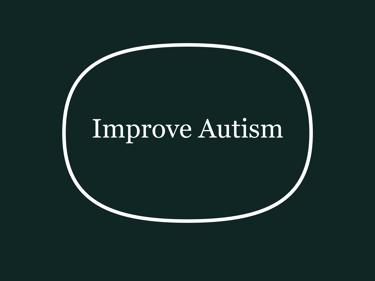Impact of Gluten-Free and Casein-Free Diet on Behavioural Outcomes and Quality of Life of Autistic Children and Adolescents: A Scoping Review
Authors:
Zafirovski, K., Aleksoska, M.T., Thomas, J. and Hanna, F.
GFCF Diet and Improvement of Core Autistic Symptoms
Behavior Improvements in Children with Gastrointestinal Symptoms
Three studies reported that the GFCF diet improved behavior in autistic children with gastrointestinal (GI) issues, such as constipation and diarrhea. Notably, one study found that only children with both high urinary peptides and GI problems showed positive behavioral responses to the diet.
Improvements in Sleeping Patterns
Four studies indicated that the GFCF diet enhanced sleep quality in autistic children, leading to better behavior and overall well-being.
Communication Improvements
Six studies observed improvements in communication skills, including speech and social interaction. This was supported by evidence from a systematic review and a randomized controlled trial (RCT), which noted significant gains in communication subdomains.
Stereotypic Activity Improvement
Five studies found a reduction in stereotypical behaviors (e.g., repetitive movements) following the GFCF diet. One RCT reported improvements in nonverbal IQ and reductions in panic attacks alongside stereotypic activity.
Cognitive Improvements
Six studies documented enhancements in cognitive functions, such as concentration and learning abilities, with support from a meta-analysis and a case-control study.
Improvement in ADHD Symptoms
Six studies showed that the GFCF diet reduced attention deficit hyperactivity disorder (ADHD) symptoms, including hyperactivity and impulsivity, in autistic children.
The Gut-Brain Link
GFCF Diet and Coeliac Disease (CD)
Three studies explored the connection between coeliac disease, the GFCF diet, and autism. The diet was found to alleviate GI discomfort in autistic children with coeliac disease or food allergies. One study noted that the immune response to gluten in autistic children differs from that in coeliac disease but still influences behavior.
The Opioid Theory
Two studies supported the opioid theory, which posits that gluten and casein peptides leak into the bloodstream, producing opioid-like effects that exacerbate ASD symptoms. The GFCF diet was shown to reduce urinary peptide levels and improve symptoms in some children.
Dietary Interventions and Autism
Overall Wellbeing and Behavioral Improvements
The GFCF diet was linked to enhancements in behavior, cognitive function, learning abilities, and overall well-being. One RCT highlighted benefits in social interaction and daily living skills.
Comparison with Other Diets
A case-control study compared the GFCF diet with the ketogenic diet and modified Atkins diet, finding that all three improved autistic symptoms. The GFCF diet specifically enhanced speech and behavior.
Possible Side Effects Due to the GFCF Diet
Nutritional and Anthropometric Risks
Some studies reported lower anthropometric measures (e.g., weight, height) and nutritional deficiencies in children on the GFCF diet. One systematic review noted that these children often failed to meet daily nutrient recommendations compared to those on regular diets.
Other Side Effects
Reported side effects included GI discomfort, weight loss, sleep disturbances, and social isolation, highlighting potential risks of the diet.
Inconclusive Studies and Mixed Opinions
Conflicting Evidence
Six studies presented inconclusive or mixed findings about the GFCF diet’s effectiveness. Some researchers noted that its long-term effects remain controversial, and the underlying mechanisms are not fully understood.
Lack of Empirical Validation
Despite its widespread use, the GFCF diet lacks consistent empirical support. The review emphasizes the need for more rigorous research to confirm its benefits and safety.
https://pubmed.ncbi.nlm.nih.gov/39062311/
doi: 10.3390/children11070862


